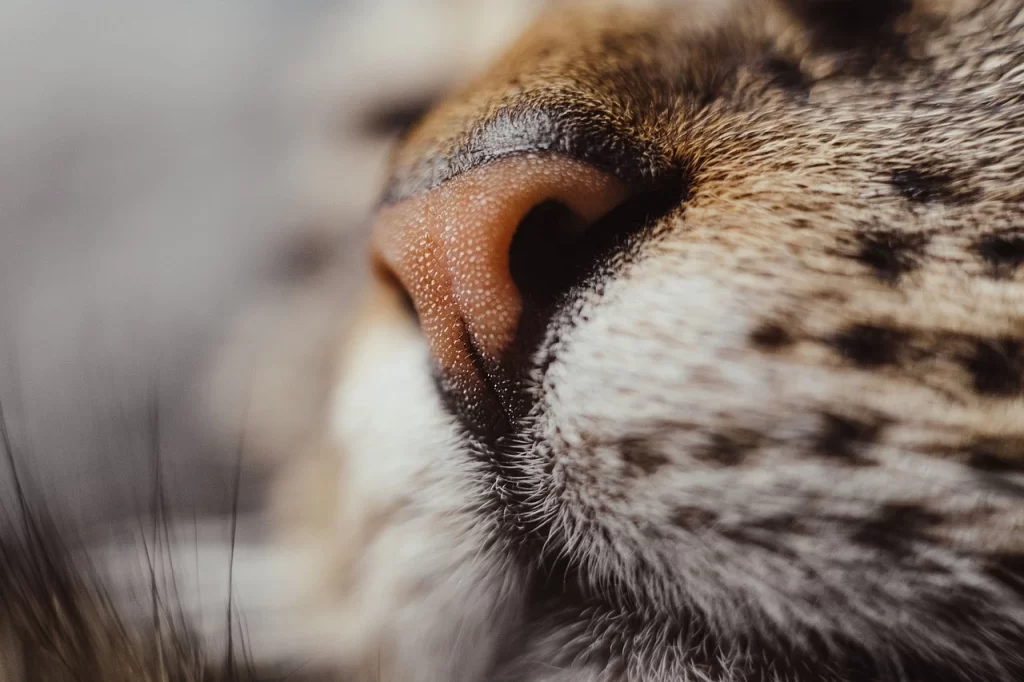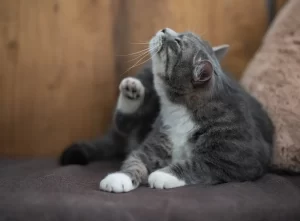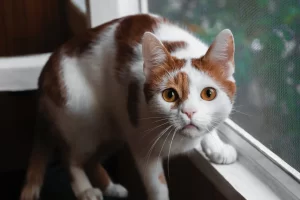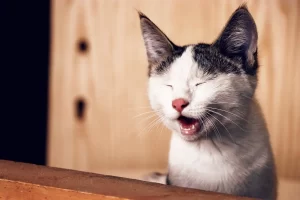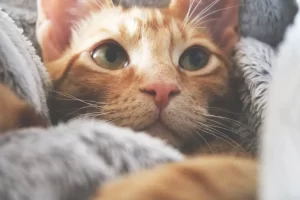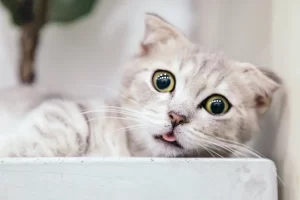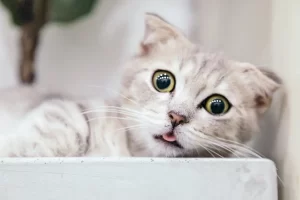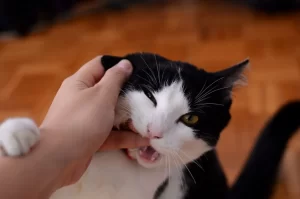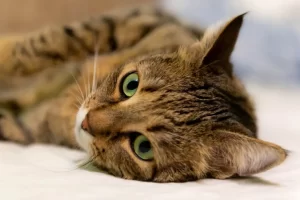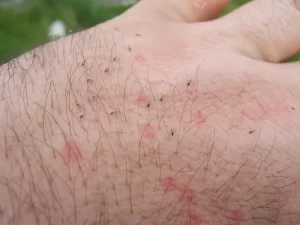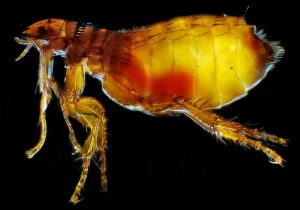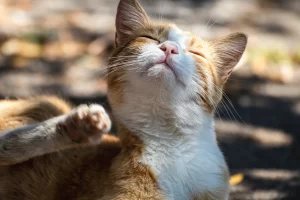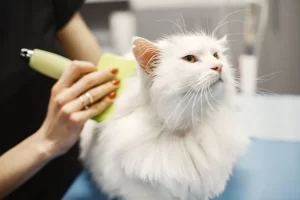Cat nasal polyps can cause a range of symptoms and health problems for our feline friends. While traditional medical treatments are available, many pet owners are seeking alternative options and home remedies for their cat’s nasal polyps. In this article, we will be discussing the most important aspects of cat nasal polyp home remedies and the home treatments for cat nasal polyps. From the definition and causes of nasal polyps in cats to the role of environmental factors and the benefits of home remedies, we will cover everything you need to know to support your furry companion in their journey toward health and wellness.
Table of Contents
Toggle
Causes of nasal polyps in cats
Nasal polyps are growths that form in the nasal passages of cats and can cause breathing difficulties, sneezing, and other symptoms. They are often benign, but in some cases, they can become cancerous.
The exact causes of nasal polyps in cats are not fully understood, but several factors are believed to play a role, including:
- Allergic reactions: Cats with allergies, especially to environmental allergens such as dust, mold, and pollen, may be more susceptible to developing nasal polyps.
- Inflammation: Chronic inflammation in the nasal passages, such as from infections or other health problems, can lead to the formation of nasal polyps.
- Immune system problems: Cats with weakened immune systems may be more prone to developing nasal polyps.
- Hereditary factors: Some breeds of cats, such as Persians, may be predisposed to developing nasal polyps.
The incidence of nasal polyps in cats is not well documented, but they are considered to be a relatively rare condition. When they do occur, they are most commonly seen in middle-aged to older cats. It’s important for cat owners to be aware of the symptoms of nasal polyps and to seek veterinary care if their cat is exhibiting any signs of breathing difficulties or other symptoms.
Symptoms of nasal polyps in cats
Here is a list of symptoms of nasal polyps in cats:
- Sneezing: Cats with nasal polyps may experience frequent or persistent sneezing (check out the associated home remedies).
- Nasal discharge: A clear, thick, or mucous-like discharge may be seen coming from the nose.
- Breathing difficulties: Nasal polyps can partially or completely block the nasal passages, making it difficult for a cat to breathe.
- Loss of appetite: Cats with nasal polyps may experience a decrease in appetite and weight loss.
- Behavioral changes: Cats with nasal polyps may become more lethargic or less active due to difficulty breathing and discomfort. Cat’s energy level may be elevated by using natural supplements, proper nutritions, and more.
- Snoring: Cats with nasal polyps may snore due to partial obstruction of the nasal passages.
- Facial swelling: In severe cases, nasal polyps can cause swelling in the face, especially around the eyes and cheeks.
- Nosebleeds: Nosebleeds may occur due to the irritation and inflammation caused by nasal polyps.
Remember that these symptoms may also be caused by other conditions, such as infections or tumors.
Traditional medical treatment options for nasal polyps in cats
Traditional medical treatment options for nasal polyps in cats may include:
- Surgery: Surgical removal of nasal polyps may be necessary in severe cases or if the polyps are cancerous. If your cat has cancer, you may be able to help him or her at home by taking advantage of these homeopathic cancer remedies.
- Corticosteroids: Corticosteroids, such as prednisone or methylprednisolone, can help reduce inflammation and shrink nasal polyps. They may be prescribed in oral, nasal spray, or injectable form.
- Antibiotics: Antibiotics, such as amoxicillin or doxycycline, may be prescribed if an infection is present in the nasal passages.
- Non-steroidal anti-inflammatory drugs (NSAIDs): NSAIDs, such as meloxicam or aspirin, may be prescribed to help reduce inflammation and swelling.
- Allergy medications: Allergy medications, such as diphenhydramine or cetirizine, may be prescribed if allergies are contributing to the formation of nasal polyps.
How home remedies work on nasal polyps in cats
Home remedies for nasal polyps in cats can work in several ways:
- Clearing congested nasal passages: Some home remedies, such as steam therapy or saline nasal sprays, can help clear congested nasal passages and reduce inflammation.
- Improving immune function: Certain dietary changes, such as adding probiotics or omega-3 fatty acids to a cat’s diet, may help improve overall immune function and reduce the risk of nasal polyp formation.
- Reducing inflammation: Some natural remedies, such as ginger or turmeric, have anti-inflammatory properties that may help reduce swelling and discomfort caused by nasal polyps.
Note that while home remedies may be beneficial in managing symptoms, they are not a substitute for veterinary care. In many cases, home remedies should be used in conjunction with traditional medical treatments for the best results.
Cat nasal polyp: Home remedies and treatments
Here are the most common home remedies and treatments for nasal polyps in cats, along with details, benefits, and instructions:
- Steam therapy: Providing a steamy environment for a cat to breathe in can help clear congested nasal passages and reduce inflammation. Simply run a hot shower or boil water on the stove, and let the steam build up in a bathroom or kitchen. Place the cat in the room and allow them to breathe in the steam for several minutes at a time, several times a day.
- Saline nasal spray: Saline nasal sprays can help moisturize and soothe dry, irritated nasal passages. Simply spray a small amount of saline solution into each nostril several times a day, as directed by a veterinarian.
- Humidifier: Using a humidifier in a cat’s living space can help keep nasal passages moist and reduce inflammation. Be sure to clean the humidifier regularly to prevent the growth of bacteria and mold.
- Dietary changes: Adding probiotics, omega-3 fatty acids, or other dietary supplements to a cat’s diet can help improve overall immune function and reduce the risk of nasal polyp formation. Discuss the appropriate type and amount of supplements with a veterinarian.
- Ginger: Ginger has anti-inflammatory properties and may help reduce swelling and discomfort caused by nasal polyps. Grate fresh ginger root and add it to food or administer as a supplement, as directed by a veterinarian.
- Turmeric: Turmeric also has anti-inflammatory properties and may be beneficial in reducing inflammation in the nasal passages. Mix turmeric powder with food or administer as a supplement.
- Apple cider vinegar: Apple cider vinegar has antibacterial and anti-inflammatory properties that may help reduce nasal polyp growth. Mix a small amount of apple cider vinegar with food or water.
- Essential oils: Essential oils, such as eucalyptus or tea tree oil, have antiseptic and anti-inflammatory properties. Dilute the oil with a carrier oil and administer a few drops to each nostril.
- Colloidal silver: Colloidal silver has antibacterial and anti-inflammatory properties that may help reduce inflammation in the nasal passages. Administer colloidal silver as a supplement.
- Vitamin C: Vitamin C is a powerful antioxidant that may help reduce inflammation in the nasal passages. Administer vitamin C as a supplement.
- Vitamin E: Vitamin E has anti-inflammatory properties and may be beneficial in reducing inflammation in the nasal passages. Administer vitamin E as a supplement.
- Zinc: Zinc has antibacterial and anti-inflammatory properties that may help reduce inflammation in the nasal passages. Administer zinc as a supplement.
- Omega-3 fatty acids: Omega-3 fatty acids have anti-inflammatory properties and may be beneficial in reducing inflammation in the nasal passages. Administer omega-3 fatty acids as a supplement, as directed by a veterinarian.
- Quercetin: Quercetin is a natural antihistamine and may be beneficial in reducing inflammation in the nasal passages. Administer quercetin as a supplement.
- N-acetylcysteine (NAC): N-acetylcysteine (NAC) has mucolytic and antioxidant properties that may be beneficial in reducing inflammation in the nasal passages. Administer NAC as a supplement.
Home remedies for cat nasal polyps: Precautions and warnings
Here are some precautions and warnings to consider when using home remedies for nasal polyps in cats:
- Consult a veterinarian: Before starting any home remedy or treatment, it’s important to consult a veterinarian to ensure that it is safe and appropriate for your cat. Some remedies may interact with medications or underlying health conditions, so it’s important to get professional advice. Read more on How often should I take my cat to the vet?
- Essential oil caution: Essential oils can be toxic to cats if used improperly, so it’s important to dilute the oil with a carrier oil and only use a few drops at a time. Be sure to keep all essential oils out of reach of your cat.
- Avoid over-the-counter remedies: Over-the-counter remedies for humans may not be safe for cats and can even be toxic, so it’s important to avoid these and only use remedies that have been specifically recommended by a veterinarian.
- Monitor for side effects: Some home remedies may cause side effects, such as vomiting or diarrhea, so it’s important to monitor your cat closely and stop using the remedy if any adverse effects occur.
- Keep remedies away from children and other pets: Some home remedies can be harmful if ingested, so it’s important to keep them out of reach of children and other pets.
- Re-evaluation: If you have tried a home remedy for a period of time and it does not seem to be helping, it may be time to re-evaluate and consider other options. A veterinarian can help you determine the best course of action for your cat’s specific needs.
Factors affecting the effectiveness of home remedies for cat nasal polyps
Here are some factors that may impact the effectiveness of home remedies for nasal polyps in cats:
- The severity of the polyps: The size and number of polyps can impact the effectiveness of home remedies. More severe cases may require a combination of home remedies and traditional medical treatment to achieve optimal results.
- Underlying health conditions: If your cat has underlying health conditions, such as allergies or a respiratory infection, these may impact the effectiveness of home remedies for nasal polyps.
- Age of the cat: The age of the cat can also impact the effectiveness of home remedies. Older cats may have weaker immune systems and may not respond as well to home remedies as younger cats.
- Duration of the polyps: The length of time that the polyps have been present can also impact the effectiveness of home remedies. Longer-standing polyps may be more difficult to treat with home remedies alone.
- Consistency of use: The effectiveness of home remedies can also be impacted by the consistency of use. It’s important to follow the recommended regimen and use the remedies consistently over a period of time to see the best results.
- Compliance with diet and lifestyle changes: Making dietary and lifestyle changes can also impact the effectiveness of home remedies. It’s important to follow the recommended changes consistently to see the best results.
Environmental factors and their role in managing cat nasal polyps
Environmental factors, such as air quality and dust exposure, can play an important role in managing nasal polyps in cats. Here are some ways that these factors can impact the treatment of nasal polyps:
- Air quality: Poor air quality can worsen nasal polyps in cats, as it can irritate the nasal passages and exacerbate symptoms. Keeping the air in your home clean and free of pollutants can help manage nasal polyps.
- Dust exposure: Dust exposure can also worsen nasal polyps in cats. Limiting your cat’s exposure to dust, such as through the use of air filters and dust-proof bedding, can help manage symptoms.
- Allergen control: Controlling allergens in the home, such as by using air filters and removing potential allergens, can help reduce symptoms and improve the effectiveness of home remedies for nasal polyps.
- Humidity: Maintaining a proper level of humidity in your home can help reduce symptoms of nasal polyps, as dry air can irritate the nasal passages.
- Stress reduction: Stress can also impact the severity of nasal polyps, so reducing stress in your cat’s environment can help manage symptoms.
You should consider these environmental factors when developing a treatment plan for nasal polyps in cats. Making changes to improve air quality and reduce dust exposure can help improve the effectiveness of home remedies and traditional medical treatments.
How to differentiate nasal polyps from other nasal conditions in cats
Differentiating nasal polyps from other nasal conditions in cats can be challenging and requires a proper diagnosis from a veterinarian. Here are some key differences between nasal polyps and other nasal conditions in cats:
- Symptoms: Nasal polyps typically cause symptoms such as nasal discharge, sneezing, and nasal obstruction, while other nasal conditions, such as infections and tumors, may cause similar symptoms.
- Physical examination: During a physical examination, a veterinarian may be able to feel the polyps in the nasal passages and differentiate them from other conditions.
- Imaging tests: Imaging tests, such as radiographs (X-rays) and CT scans, can be used to visualize the polyps and differentiate them from other conditions.
- Endoscopic examination: An endoscopic examination, which involves inserting a small camera into the nasal passages, can be used to visualize the polyps and confirm the diagnosis.
- Biopsy: A biopsy may be necessary to differentiate nasal polyps from other conditions, as well as to determine the type of polyp present.
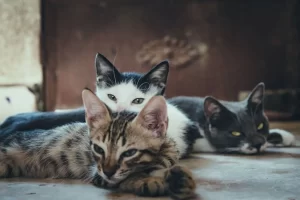
Risk factors for nasal polyps in cats: Age, breed, and more
There are several factors that may increase the risk of nasal polyps in cats, including:
- Age: Older cats are more likely to develop nasal polyps than younger cats.
- Breed: Certain breeds of cats, such as Persian and Siamese, may be more prone to developing nasal polyps.
- Allergies: Cats with allergies, such as those to dust or pollen, may be more prone to developing nasal polyps.
- Infections: Chronic infections in the nasal passages, such as feline herpesvirus or feline calicivirus, may increase the risk of developing nasal polyps. If your cat has calicivirus, you may be able to treat him or her at home by following these home treatments.
- Inflammatory conditions: Inflammatory conditions, such as feline asthma or eosinophilic granuloma complex, may increase the risk of developing nasal polyps. Keep these home remedies and treatments in mind if your cat has asthma.
Surgical options for nasal polyps in cats
Surgical options for treating nasal polyps in cats may be necessary in cases where home remedies and traditional medical treatments are not effective. Here are some common surgical options for treating nasal polyps in cats:
- Polypectomy: Polypectomy is a surgical procedure that involves removing nasal polyps. This can be done using endoscopic instruments, which are inserted through the nasal passages, or through an open incision in the nasal passages.
- Rhinotomy: A rhinotomy is a surgical procedure that involves removing part of the nasal bone to access and remove the polyps. This procedure is typically only performed in severe cases of nasal polyps.
- Cryosurgery: Cryosurgery involves using extreme cold to freeze and remove the polyps. This procedure is typically only performed in severe cases of nasal polyps.
- Laser surgery: Laser surgery involves using a laser to remove the polyps. This procedure is less invasive than other surgical options and may result in less scarring and a faster recovery time.
Potential side effects of surgery for nasal polyps in cats
Like any surgical procedure, treating nasal polyps in cats with surgery can have potential side effects. Some of the most common side effects of surgery for nasal polyps in cats include:
- Pain: Your cat may experience some pain and discomfort after surgery, which can be managed with pain medication prescribed by your veterinarian.
- Bleeding: Some bleeding is normal after surgery, but excessive bleeding can indicate a problem and should be reported to your veterinarian.
- Infection: There is a risk of infection after surgery, which can be managed with antibiotics prescribed by your veterinarian.
- Scarring: Scarring may occur after surgery, which can impact your cat’s breathing and cause additional complications.
- Recurrence: In some cases, the polyps may recur after surgery, requiring additional treatment.
Discuss the potential side effects of surgery with your veterinarian, as well as the steps that can be taken to minimize the risk of these side effects.
Tips for post-surgery care for cats with nasal polyps
After surgery to treat nasal polyps in cats, it’s important to provide proper post-surgery care to help ensure a successful recovery. Here are some tips for post-surgery care for cats with nasal polyps:
- Monitor breathing: Regularly monitor your cat’s breathing to ensure that they are breathing comfortably and without any difficulty.
- Administer pain medication: If prescribed by your veterinarian, administer pain medication as directed to help manage any discomfort or pain.
- Keep the surgical area clean: Keep the surgical area clean to minimize the risk of infection. Your veterinarian may recommend using an antiseptic solution to clean the area.
- Restrict activity: Restrict your cat’s activity level to minimize the risk of reopening the surgical incision or causing damage to the surgical area.
- Follow-up appointments: Attend all follow-up appointments with your veterinarian to monitor your cat’s progress and to address any concerns or questions.
- Provide a calm and stress-free environment: Provide a calm and stress-free environment to help reduce stress and promote healing.
Potential complications of untreated cat nasal polyps
Nasal polyps in cats can cause a variety of symptoms and health issues if left untreated. Some of the risks and potential complications if left untreated include:
- Breathing difficulties: Nasal polyps can obstruct the airways and cause breathing difficulties, which can be especially problematic for cats with pre-existing respiratory issues.
- Chronic sinusitis: Nasal polyps can cause chronic sinusitis, which can lead to persistent infections and inflammation. Help your cat with sinus infection by following these simple home treatments.
- Loss of sense of smell: Nasal polyps can interfere with the sense of smell, which can affect a cat’s ability to locate and hunt food.
- Secondary infections: Nasal polyps can provide a breeding ground for bacteria and other microorganisms, which can lead to secondary infections.
- Facial deformities: If left untreated, nasal polyps can grow and cause facial deformities, which can impact a cat’s ability to breathe, eat, and see.
- Loss of appetite: Nasal polyps can cause a loss of appetite, which can lead to weight loss and other health issues.
Which vet to visit with what expertise?
If your cat has symptoms of nasal polyps, it’s important to seek veterinary care as soon as possible. A general practitioner veterinarian can diagnose and provide initial treatment for nasal polyps, but in some cases, referral to a specialist may be necessary.
The following types of veterinarians may be involved in the diagnosis and treatment of nasal polyps in cats:
- General practitioner veterinarian: A general practitioner veterinarian can diagnose and provide initial treatment for nasal polyps. They can also perform simple surgical procedures or refer the case to a specialist if necessary.
- Specialist veterinarian: A specialist veterinarian, such as a veterinary ophthalmologist, veterinary neurologist, or veterinary surgeon, may be necessary for complex cases of nasal polyps.
- Veterinary oncologist: A veterinary oncologist may be necessary if there is a suspicion of malignancy (cancer) in the nasal polyps.

